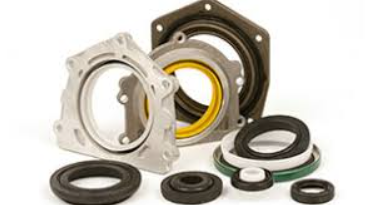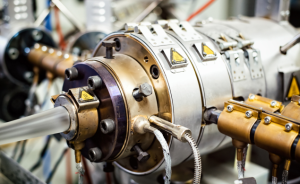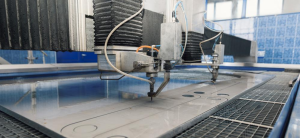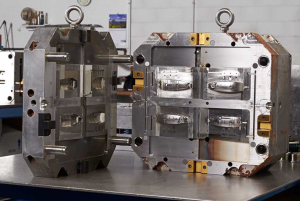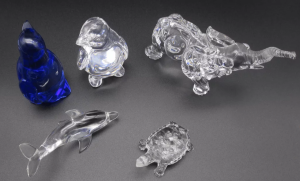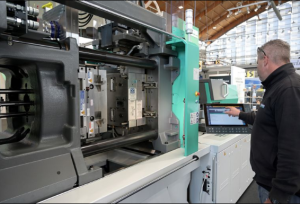Yes, PTFE (Polytetrafluoroethylene) can be injection molded, although it requires special considerations due to its unique properties and processing requirements. PTFE is a high-performance fluoropolymer known for its exceptional chemical resistance, low friction coefficient, and high temperature resistance. Here’s an overview of PTFE injection molding:
Properties of PTFE
- Chemical Resistance:
- PTFE is highly resistant to chemicals, including acids, bases, and solvents.
- Low Friction Coefficient:
- It has one of the lowest coefficients of friction among solid materials, making it suitable for applications requiring lubricity.
- Temperature Resistance:
- PTFE can withstand continuous temperatures up to 260°C (500°F) and intermittent temperatures up to 300°C (572°F).
- Non-Stick Properties:
- PTFE exhibits non-stick properties, making it ideal for applications where easy release of materials is required.
- Electrical Insulation:
- It has excellent electrical insulation properties, even at high temperatures.
- Low Surface Energy:
- PTFE has a low surface energy, which prevents adhesion of contaminants and facilitates easy cleaning.
Applications of PTFE Injection Molding
- Industrial Seals and Gaskets:
- Due to its chemical resistance and low friction properties.
- Bearings and Bushings:
- Where low friction and wear resistance are critical.
- Valve Components:
- Such as seats and seals in chemical processing.
- Medical and Pharmaceutical:
- Components requiring biocompatibility and sterilizability.
- Electrical Insulation:
- Insulators and connectors in electrical and electronics applications.
Injection Molding Process for PTFE
- Material Preparation:
- PTFE is processed in a powder form and does not require drying like thermoplastics. However, it must be pre-sintered to improve flow properties.
- Injection Molding Machine Setup:
- Temperature Settings: Barrel temperatures are typically set between 340°C to 380°C (644°F to 716°F).
- Injection Pressure: Higher pressures are required due to the high viscosity of molten PTFE.
- Cooling Time: Cooling time is longer compared to thermoplastics due to PTFE’s slow crystallization rate.
- Molding Cycle:
- Injection: PTFE powder is heated and injected into the mold cavity under high pressure.
- Cooling: The part cools and solidifies in the mold. Cooling time is critical to prevent warpage and ensure dimensional stability.
- Ejection: Once solidified, the part is ejected from the mold.
- Post-Processing:
- Parts may require machining or polishing to achieve final dimensions and surface finish.

Choose us for your custom injection molding needs and experience excellence in every detail. Our China-based factory provides innovative solutions, competitive pricing, and fast turnaround times. Get your custom quote now!
Benefits of Using PTFE in Injection Molding
- Chemical Resistance: Excellent resistance to a wide range of chemicals.
- Low Friction: Suitable for applications requiring low friction and wear.
- Temperature Resistance: Can withstand high temperatures without significant degradation.
- Non-Stick Properties: Easy release of materials, ideal for food processing and molding applications.
- Electrical Insulation: Good dielectric properties for electrical and electronics applications.
Considerations
- High Processing Temperatures:
- PTFE requires high processing temperatures, which can increase energy consumption and mold wear.
- Dimensional Stability:
- Proper mold design and cooling are essential to achieve dimensional accuracy and prevent warpage.
- Surface Finish:
- Achieving a smooth surface finish may require additional post-processing steps.
- Material Handling:
- PTFE powder can be difficult to handle due to its low surface energy. Special equipment and precautions are necessary to prevent contamination.
Conclusion
PTFE injection molding offers unique advantages due to its chemical resistance, low friction, and high temperature capabilities. It is suitable for demanding applications in industries such as chemical processing, automotive, aerospace, and medical. Proper material handling, machine setup, and mold design are crucial to achieving high-quality PTFE injection-molded parts. By addressing these considerations, manufacturers can leverage PTFE’s exceptional properties to produce durable, high-performance components for various applications.
Related Conten: Expert Large Plastic Molds Manufacturing

